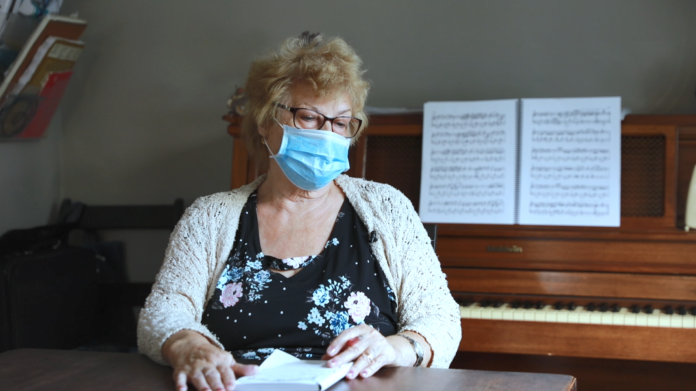A group of nursing students and other researchers have found that seniors are finding ways to cope with loneliness and anxiety compounded by the pandemic.
Heather Nelson, research chair, says that literature shows that up to 50 per cent of seniors experience loneliness on a regular basis and that experience has worsened with the pandemic.
“A lot of it is due to losing a spouse, they’re not going to work so they lost that social group, a lot of them don’t have family or friends nearby so they are more isolated on day to day basis and then COVID just made that more problematic,” Nelson said.
Nelson said that other age groups like young adults face challenges with the pandemic as well, but are more likely to use social media, and have larger friend groups and family to support them. She says these are all things senior citizens may not have, and that presents a challenge.
“Without having the face-to-face contact they may not be having a lot of social contact in their lives.”
There are 40 seniors aged 60 or older included in the study. Each of them were interviewed three times in April, May, and June, Nelson said.
The next part of the study in the winter will look at implementing an intervention with the group of seniors. Nelson said this may include introducing technology like video or phone calls to the seniors.
She also noted that a lot of the seniors that were interviewed have been using video conferencing and social media to keep in touch with their friends. Nelson did say there are some seniors who may not be comfortable with that.
Over the summer the study found that the seniors were involved with activities and hobbies that helped them cope better. This included exercising, gardening, sewing, baking, and woodworking.
“As the weather got better it improved things because they were able to leave their house more easily.”
As for communicating with friends, Nelson said some seniors called their friends or had virtual coffee to catch up.
Seniors also relied on family for both physical and emotional support. This included having their family members deliver groceries, or visiting with them virtually or from a distance. Nelson said seniors also continued to engage with church, community groups and volunteering.
“Seniors get a lot of joy out of volunteering and they also add a lot to the community through their volunteer work and part of this was taken away during COVID.”
Nelson added that many seniors continue to volunteer in the pandemic.
Well most of the research findings were expected, Nelson said she was “pleasantly surprised” by how much technology seniors were using. She also found seniors were using a lot humour in the interviews, something she calls a positive finding.
Nelson acknowledged that the interviews were an intervention as well, as most seniors looked forward to having the conversations with researchers. When she spoke to researchers this fall many said they wanted to check in on the seniors.
“It created its own little social group just by doing the interviews.”
With winter coming up, Nelson says it’s important for seniors to stay connected — whether that’s through phone calls or other virtual means. She said it would be nice for them to visit outside, but that’s harder to do with colder weather.


